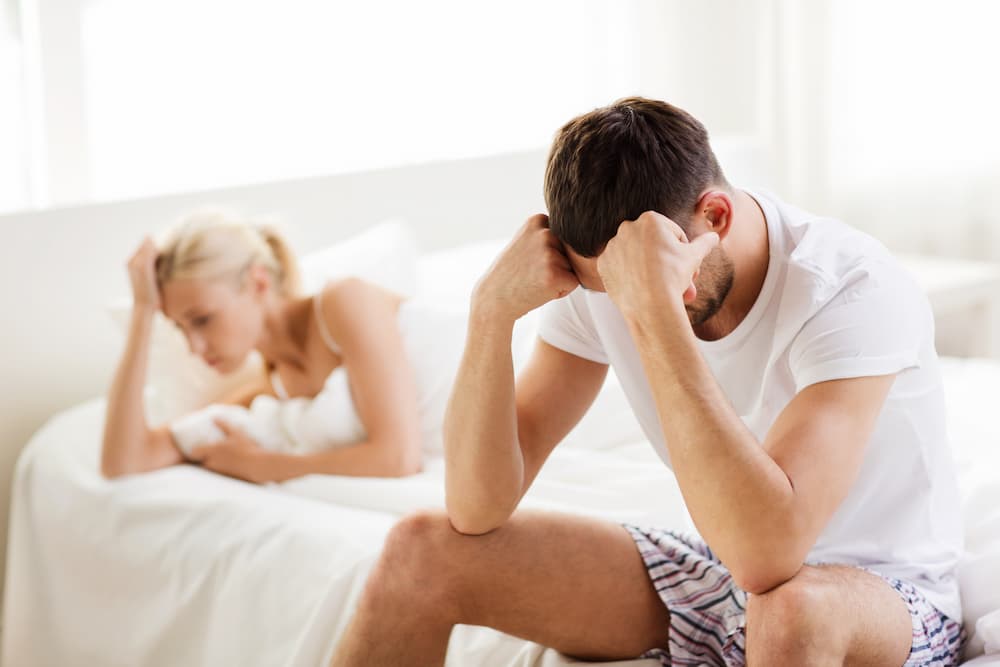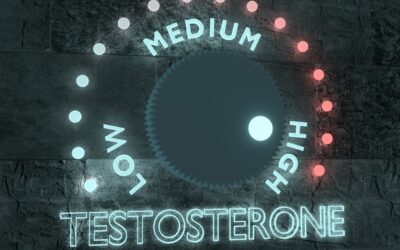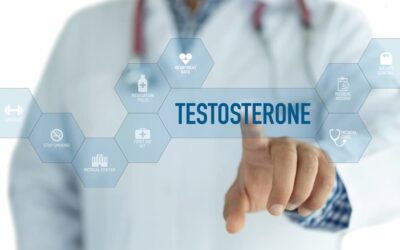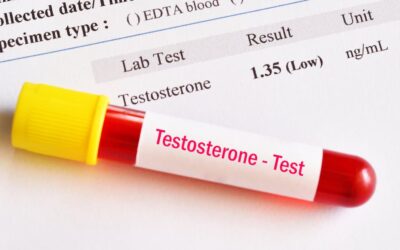Erectile dysfunction is like a not-so-little secret that nobody talks about, but every guy dreads. After the age of 40 or so, some of the scariest stories you can tell are the ones about the sex lives that fizzle out as a result of issues with sexual function – or at least, that’s what plenty of people think.
Thankfully, erectile dysfunction isn’t quite the life sentence it’s made out to be. Especially now, in our world of modern-day age management and hormone therapy, finding the right erectile dysfunction treatment is easier than you might think.
Struggling with erectile dysfunction can wreak havoc on a man’s confidence level, relationship, and of course, his sex life. But before you turn to expensive prescription medications (or even worse, give up on sexual satisfaction altogether), you should learn about the connections between erectile dysfunction and low testosterone – and what that means for your treatment options.
Why Your Hormone Levels Matter
You may or may not know that declining testosterone levels are an expected part of the aging process, because your body starts to slow the production of testosterone around age 30. Since testosterone levels vary from man to man, the effects of decreasing testosterone may time more time to affect certain guys than it does other. However, research shows that, by the time you’re 75 years old, you’ll have only half of the free testosterone available you did at 25.
Now, you might be thinking that you have plenty of time before you hit 75 – in your 40s or 50s, that can seem like a lifetime away. However, the symptoms of low testosterone can take a toll on your quality of life long before then.
Here’s where the connection between low-T and erectile dysfunction comes in: many men with testosterone deficiencies also experience erectile dysfunction. Let’s take a closer look at whether low testosterone affects erectile dysfunction, and what that means for ED treatment options.
Does Low Testosterone Cause Erectile Dysfunction?
There are many different causes of erectile dysfunction, but the most common factor behind this challenging condition is hypogonadism (a scientific term for hormonal deficiencies).
However, it’s not quite accurate to say that low-T is the single primary cause of ED. Instead, the symptoms of low testosterone create a “perfect storm” for erectile dysfunction to develop.
Here’s how:
- Low testosterone has a long list of negative side effects, including:
- Lowered sex drive
- Chronic exhaustion
- Weight gain
- Increase in body fat
- Difficulty focusing
- Irritability, depression, and anxiety
- Less stamina
- The healthy erectile function requires a delicate balance between your body and mind, including your hormones, blood vessels, muscles, nerves, emotions, and more.
- So, when low-T causes challenging physical and psychological effects, getting (and maintaining) an erection can become increasingly difficult.
Look at it this way: if you’re feeling tired, anxious, sluggish, and like you don’t look your best, it’s not exactly easy to get “in the mood.” So, not only is low testosterone a major factor in erectile dysfunction but so are all of the various symptoms low-T causes.
Does Testosterone Replacement Therapy Work to Improve Erectile Dysfunction?
Testosterone replacement therapy (TRT) is designed to replenish your body’s supply of testosterone, essentially helping your systems recalibrate and function optimally. You’ll receive a customized dosage of testosterone to make up for any deficiencies, treating low-T and helping improve erectile dysfunction at the same time.
You’ll go from battling fatigue, weight gain, mental fog, mood swings, and low libido to feeling like a younger, healthier version of yourself. TRT can help you make progress in the gym, at work, and in the bedroom alike, so you’ll rebuild your confidence and look forward to intimacy once again.
And even if you don’t have measurably low testosterone levels, some studies suggest that TRT can still help men with “normal” T-levels see improvements in erectile dysfunction.
Trust Ehormones MD to Help You Find the Right Erectile Dysfunction Treatment Options
At Ehormones MD, we focus on finding the causes of erectile dysfunction and then creating customized treatment plans to match. Here, you can be confident that you won’t be disappointed by generic erectile dysfunction therapies that fall short of expectations – because we take a medically-backed approach to support your health and wellness goals.
The right TRT plan can help you shed stubborn weight, regain the energy of your youth, and get back in the game when it comes to sexual performance, fitness, career milestones, and more. And if you’re struggling with erectile dysfunction, Ehormones MD will help you get the answers you need to achieve rapid results.
For more information about how to help erectile dysfunction with TRT, contact Ehormones MD today.
Image Source: Syda Productions / Shutterstock





